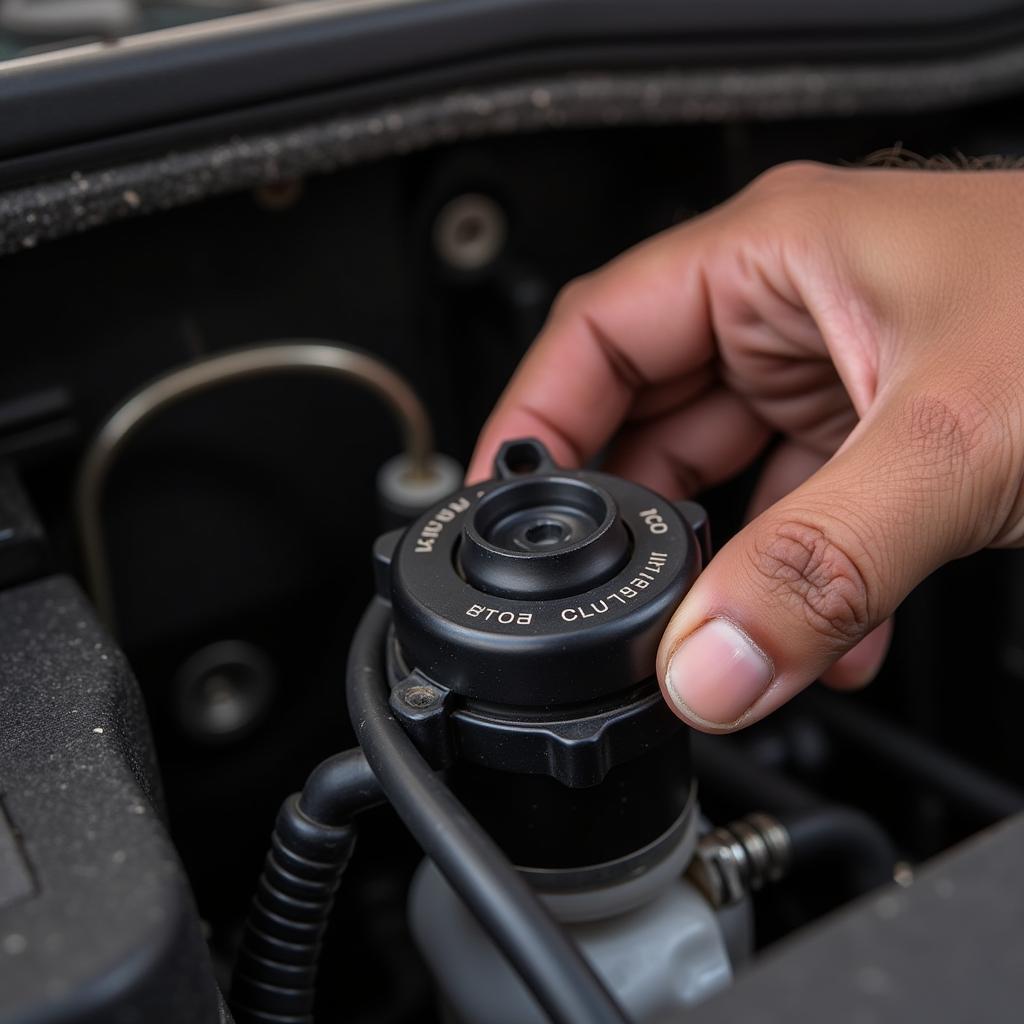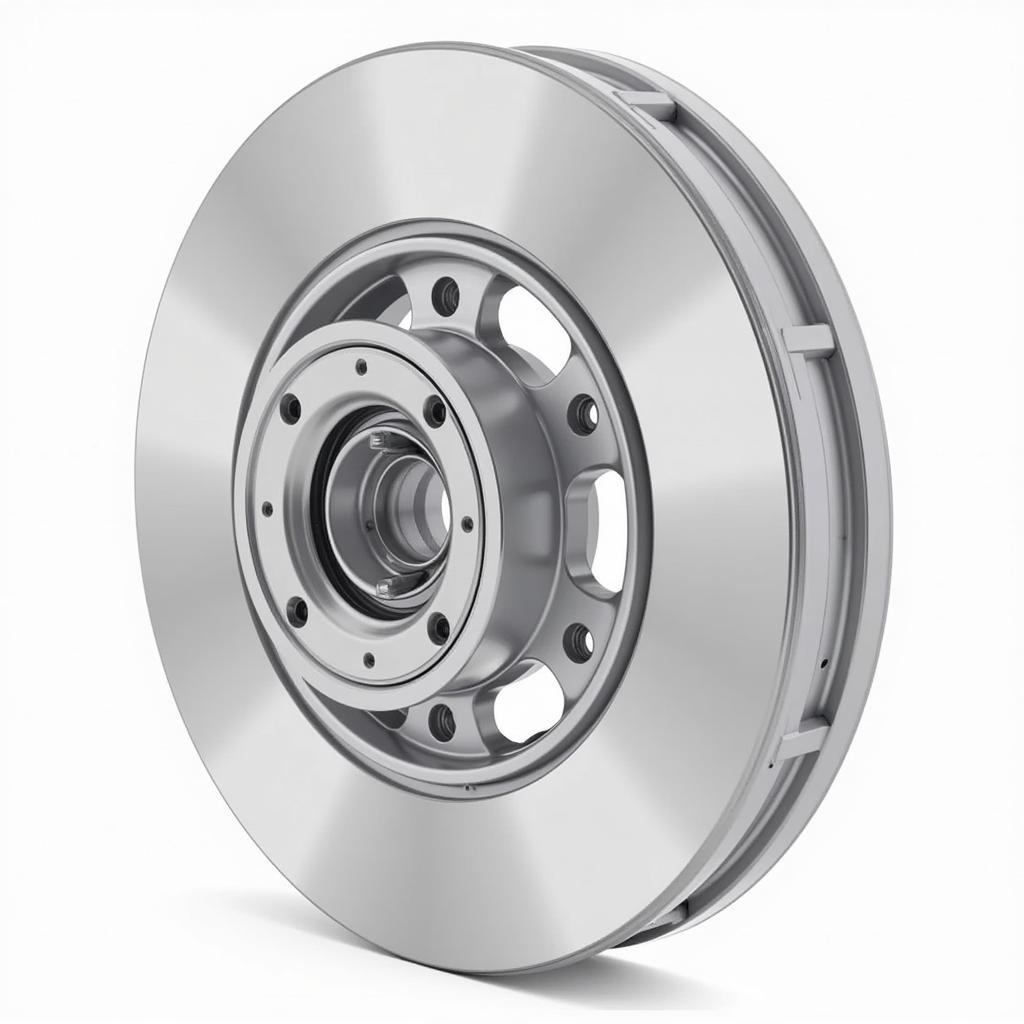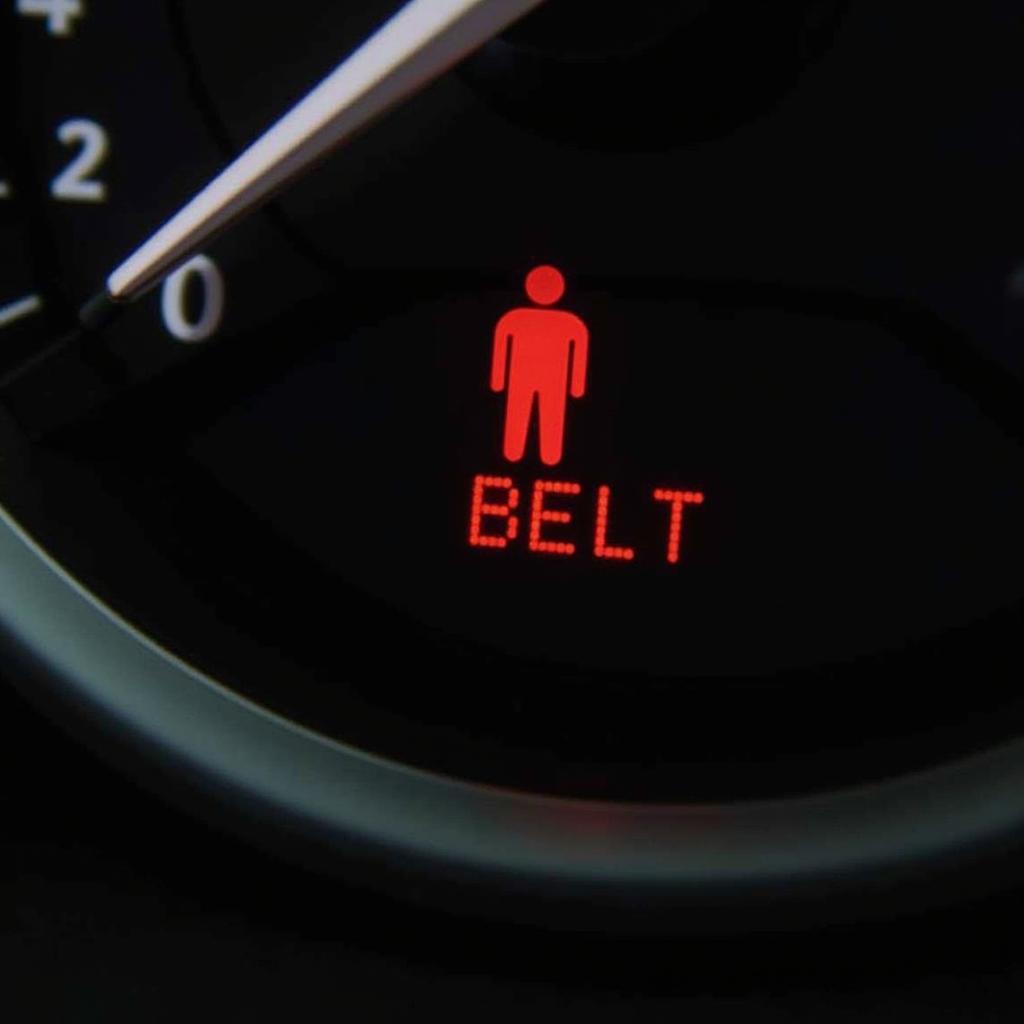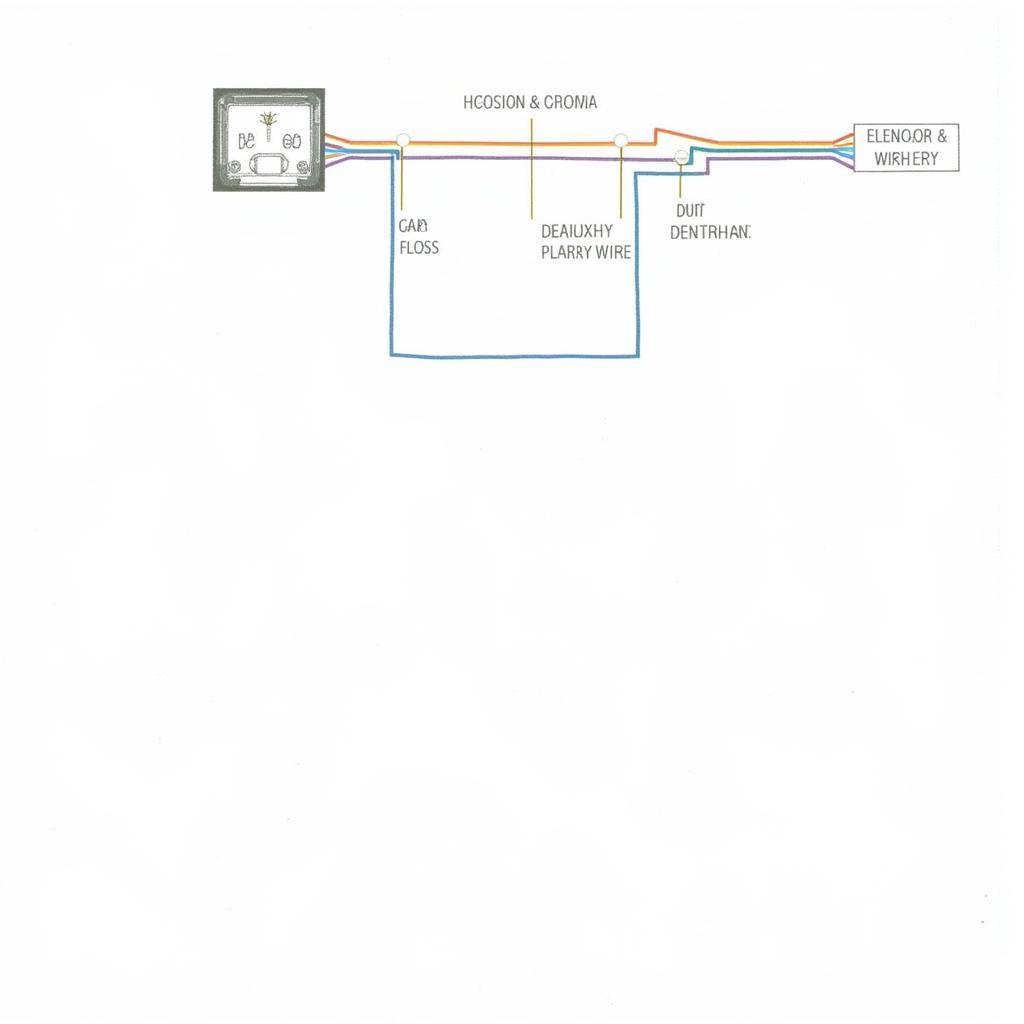The brake warning light on your dashboard is a crucial safety feature, designed to alert you of potential issues within your braking system. While it can be triggered by several factors, knowing which switches are directly linked to its illumination can be incredibly helpful for both diagnosing and addressing the problem.
This article dives into the specific switches that can trigger your brake warning light, providing you with valuable insights to help you get back on the road safely.
The Usual Suspects: Switches Directly Linked to Your Brake Warning Light
There are several switches directly connected to your vehicle’s brake warning light system. Understanding their function can give you a head start in pinpointing the cause of the illuminated warning:
-
Parking Brake Switch: This switch is often the most common culprit behind a glowing brake warning light. It’s activated when you engage your parking brake, signaling the system to illuminate the warning light on your dashboard. If the switch malfunctions or gets stuck, it can cause the light to stay on even when the parking brake is disengaged.
-
Brake Fluid Level Sensor: Your car relies on adequate brake fluid levels for optimal braking performance. This sensor is designed to detect low fluid levels and trigger the warning light as an indication.
-
Hydraulic Brake Pressure Switch: This switch plays a critical role in monitoring the hydraulic pressure within your braking system. If it detects an imbalance or drop in pressure – potentially indicating a leak or other serious issue – it will trigger the brake warning light.
 Brake Fluid Level Sensor
Brake Fluid Level Sensor
Beyond the Basics: Other Switches That Can Indirectly Affect the Warning Light
While the switches mentioned above have a direct link to your brake warning light, certain other switches can indirectly influence its behavior:
-
ABS Wheel Speed Sensors: While primarily associated with the Anti-lock Braking System (ABS), these sensors also play a role in brake warning light activation. A malfunctioning ABS wheel speed sensor can disrupt the ABS system, potentially leading to the illumination of the brake warning light.
-
Steering Angle Sensor: Primarily responsible for providing data to the Electronic Stability Control (ESC) system, a faulty steering angle sensor can sometimes indirectly trigger the brake warning light. This is usually due to communication errors between the ESC and braking systems.
 ABS Wheel Speed Sensor Location
ABS Wheel Speed Sensor Location
Troubleshooting a Brake Warning Light: A Step-by-Step Guide
Facing a glowing brake warning light can be concerning. While consulting a qualified mechanic is always recommended, these steps can help you troubleshoot the issue:
-
Check Your Parking Brake: Ensure your parking brake is fully disengaged. If the light persists, move on to the next step.
-
Inspect Brake Fluid Level: Carefully open the brake fluid reservoir and check the fluid level. If it’s low, add the recommended brake fluid type. However, persistently low fluid levels may indicate a leak, requiring immediate professional attention.
-
Visual Inspection: Examine your brake lines and hoses for any visible leaks, cracks, or damage.
-
Seek Professional Help: If the light remains illuminated after these checks, it’s crucial to seek assistance from a qualified mechanic immediately.
Don’t Ignore the Warning: Prioritizing Brake System Safety
Remember, your brake system is paramount to your safety on the road. Ignoring a brake warning light can have serious consequences. While understanding the switches that can trigger it is helpful, never hesitate to consult a professional for diagnosis and repair.
93 chevy g30 brake warning light intermittent on
FAQs
Q: Can a faulty brake light bulb trigger the brake warning light?
A: While uncommon, a faulty brake light bulb can sometimes lead to a warning light issue. This typically occurs in vehicles equipped with advanced bulb monitoring systems.
Q: My brake warning light flickers intermittently. What could be the problem?
A: Intermittent flickering usually points to a loose connection, a failing sensor, or a problem with the wiring harness.
Q: If my ABS light is on, can it also cause the brake warning light to illuminate?
A: Yes, a malfunctioning ABS system can trigger the brake warning light as well. These systems are often interlinked, and issues within the ABS can affect the overall braking system.


